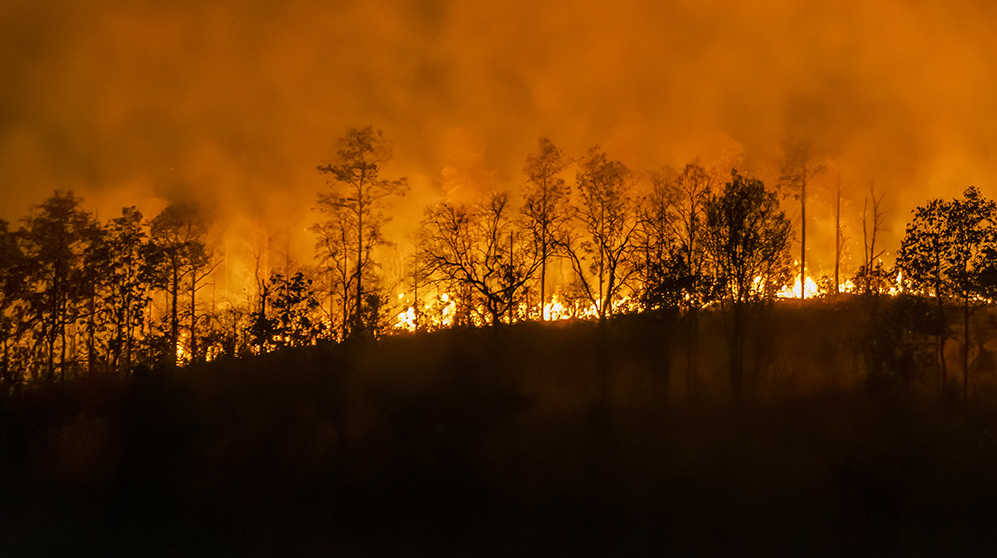Natural Disasters Blowing Up Insurance Costs
• 2 min read
- Brief: Banking
Get the latest in Research & Insights
Sign up to receive a weekly email summary of new articles posted to AMG Research & Insights.

Bank borrowers beware. All the financial losses in recent years due to natural disasters—from wildfires to hurricanes—have insurance companies rethinking what they will insure and how much it will cost if they do. That, in turn, is making banks very choosy about what collateral is used to secure a loan.
All of that means costs are rising. Here’s why:
A loan is usually secured by property or equipment, and the lender typically wants it insured in case the property or equipment is damaged or destroyed. And in the case of homes, the owner usually wants insurance to protect against natural disasters, among other perils. When an insurer provides coverage to a multitude of clients that pay for a specific type of insurance or has many insured clients in a specific geographic area, the total exposure can exceed the insurance company’s ability to pay claims. To mitigate, the insurance company may seek to share the risk by reinsuring their policyholders with other insurance companies. This is known as “insurance of insurance companies.” The idea is that no insurance company has too much exposure to a particularly large event or disaster.
But the recent spate of large-scale catastrophes, such as tornadoes, floods, hurricanes and wildfires, have resulted in huge claims, causing insurance companies to reassess whether to continue providing coverage in the affected areas. One only needs to look at the California wildfires or the hurricanes in coastal states to realize the huge costs that insurers are obligated to cover. And the costs are often more than simply replacing the original building because of changes in codes, including requirements for “green” energy such as electricity versus natural gas, and the lack of available skilled labor to rebuild.
In some instances, insurers are not writing policies for new clients in areas that may be prone to natural disasters, and policies that are being renewed in those areas usually have significantly higher costs.
Bottom Line: Make certain that you have the appropriate amount of insurance and annually evaluate the coverage. And if you have a loan secured by real estate or equipment, be aware that your loan officer will probably ask for a copy of the policy and ask to be named as an additional insured party.
This information is for general information use only. It is not tailored to any specific situation, is not intended to be investment, tax, financial, legal, or other advice and should not be relied on as such. AMG’s opinions are subject to change without notice, and this report may not be updated to reflect changes in opinion. Forecasts, estimates, and certain other information contained herein are based on proprietary research and should not be considered investment advice or a recommendation to buy, sell or hold any particular security, strategy, or investment product.
Get the latest in Research & Insights
Sign up to receive a weekly email summary of new articles posted to AMG Research & Insights.


